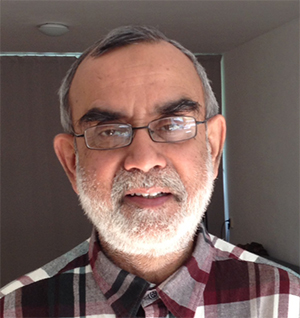Canada should take moral leadership for peace keeping through pluralist discourse
Author(s):
Fayyaz Baqir

The new millennium has brought new hopes and challenges for the global community. The end of cold war supposed to lead to a lasting peace generated new conflicts between various interest groups including the occupation armies and militant outfits. Norms of global governance have not provided level field to protect the interests of weak and disenfranchised groups and communities against the mighty. A discourse based on realization of the compassionate social values, interdependence, and pluralist governance has not emerged to bring an end to unilateralism, military occupations, regime changes, epistemic violence and the world of alt facts. These conflicts have resulted due to failure of global governance structures in regulating the economic space, sustaining consensus on mitigation of climate change, giving due recognition to diversity dividend, and helping the victims of rapid dislocations in the global market through instruments like socially responsible accounting and universal basic income.
This calls for setting up a new research agenda based on cosmopolitan ethical values. The research for creating a pluralist global community needs to tread on an inclusive path and engage global civil society, youth, academia, media and legal community in addressing the issues which can best be solved through collective action. Canada needs to take moral leadership to define pluralist research agenda to deal with the fault lines of global social space during the fourth industrial revolution. Academic research needs to strengthen evidence based dialogue between conflicting interests. These conflicts revolve around regulation of cyberspace, countering all forms of social discrimination and realizing opportunities for collaboration between people across faith, gender, class, caste and national divides. Building a body of knowledge based on the social reality of deprived classes and sections of society can pave the way for building bridges across various divides. Social, technical and financial innovations that can enhance access to basic needs like water, shelter, health, education, income generation and physical security for billions of people living under informal economy have been aptly termed as frugal sciences. For a lasting peace Canada needs to take lead in building a shared body of frugal sciences.
Frugal sciences need to answer questions like what perpetuates the scarcity mindset during the period of unprecedented abundance in human history. We need to know why our ‘rational’ decision making leads us to spend more on arms production and less on malaria eradication, end to hunger, alleviation of poverty and access to clean drinking water. We need to know why human freedom does not translate into social justice. We need to know why the people with equal capacities receive extremely unequal rewards in the market place. We need to discover the gaps which create deep mistrust between people who can benefit enormously through social, economic and political interaction. We need to discover why shrinking physical space between people across the globe has led to increasing misunderstanding and conflict. This requires engagement with diverse social constituencies and building knowledge in an inclusive way. Canada needs to build cross border knowledge linkages and trigger off the process for creating global knowledge for a global village.

